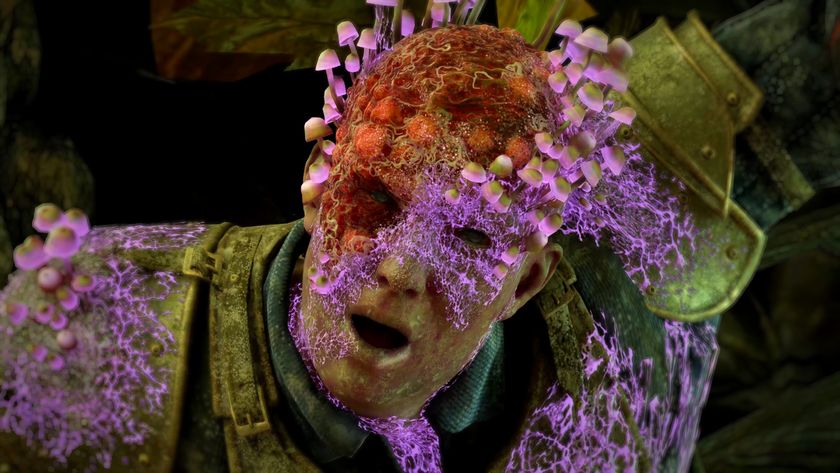Rachel Hartman's novel has been shortlisted for the 2012 Kitschies Golden Tentacle award. SFX 's Nic Clarke examines its chances
And yet: despite all this, Hartman’s novel turns out to be one of the most elegant and absorbing fantasy debuts in some years. It fully deserves its place on the shortlist for the Kitschies’ Golden Tentacle Award , a prize given – as readers of this site over the past few weeks will know – to the most “progressive, intelligent and entertaining” genre fiction of the year.
The "entertaining" portion of the Golden Tentacle’s rubric lies squarely with Seraphina ’s characters, who are the heart and centre of the novel and wonderfully fun to spend time with, whether they’re having a chat over tea, getting sucked into a marketplace riot, or questing off to parley with a particularly ornery dragon. This is also not, in general, a book that takes itself too seriously: protagonist Seraphina’s view of the world has a strong strain of dry wit running through it, and Hartman even embeds the odd meta-joke. A foreign visitor to a Goredd music festival, for example, who brings a design for a pipe organ so loud it shakes entire buildings, is named Lars (as in Metallica drummer Ulrich).
The novel earns its progressive and intelligent stripes with its setting, which examines multiculturalism through a fantastical lens and a mature, nuanced sensitivity to varying ideas and experiences. In Seraphina’s homeland, a forty-year-old peace agreement between humans and dragons – pioneered by the aforementioned Queen Lavonda – has ended a long, highly destructive inter-species war. Most dragons are able to assume humanoid form, and since the peace, some have come to live in human cities as traders, diplomats, and teachers.
Tension remains, however, and only gets worse as more dragons arrive to bring the joy of advanced maths to the students of Goredd. Neither side can forget the past, and some believe humans and dragons are simply incompatible neighbours. Many humans worry that dragons could start snacking on them again at any moment, and brand people who form friendships with dragons as traitors and perverts; the belief that dragons lack souls is a widespread part of religious belief. Dragons, for their part, are suspicious of humans with their baffling, dangerously illogical "feelings", and there are factions who see a new war as a good career move. Humanoid dragons are watched like hawks by all concerned: the human authorities make them wear little silver bells so they can always be recognised (and avoided); dragonkind’s powers-that-be, meanwhile, force city-dwellers to keep an eye on each other, so that anyone developing un-dragonish emotions can be hauled home for a quick lobotomy.
Seraphina is caught between these two worlds. Not because she’s all special and more enlightened than everyone around her, but because she doesn’t have much choice: she’s the daughter of tragically star-crossed inter-species lovers, and so she spends her entire life trying to hide what is written across the skin of her belly in dragon scales. She can’t help but notice, then, all the manifold tiny bigotries with which the boundaries between humans and dragons are maintained. She passes for human very successfully; as the novel opens, her new job as assistant to the royal court’s chief composer is bringing her into very elevated circles. But this success comes at a cost: protecting her secret means biting her tongue at every sneering "joke" made about dragons, and keeping her distance, at least publicly, from her closest friend and mentor, because he’s a humanoid dragon, and her uncle. She’s living proof that humans and dragons can find value in each other’s lives and cultures; but it’s a message few want to hear.
Nic Clarke
Sign up to the SFX Newsletter
Get sneak previews, exclusive competitions and details of special events each month!
SFX 's original review of Seraphina awarded it four and a half stars back in the summer . Read reviews of the other books shortlisted for the Golden Tentacle award over on the The Kitschies website .
SFX Magazine is the world's number one sci-fi, fantasy, and horror magazine published by Future PLC. Established in 1995, SFX Magazine prides itself on writing for its fans, welcoming geeks, collectors, and aficionados into its readership for over 25 years. Covering films, TV shows, books, comics, games, merch, and more, SFX Magazine is published every month. If you love it, chances are we do too and you'll find it in SFX.

















